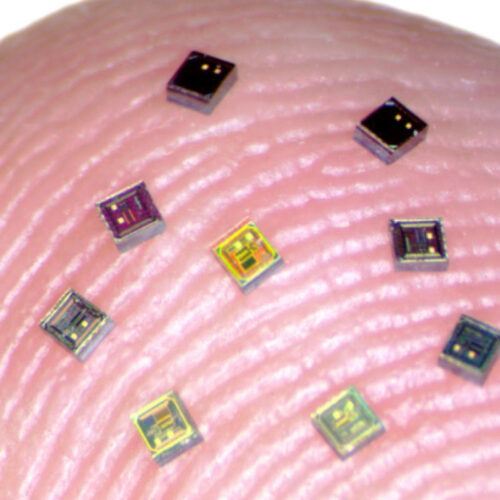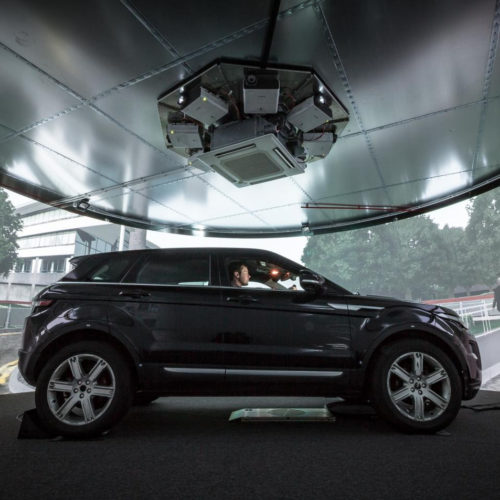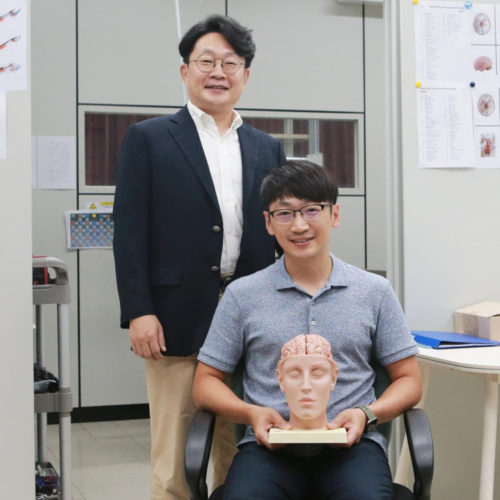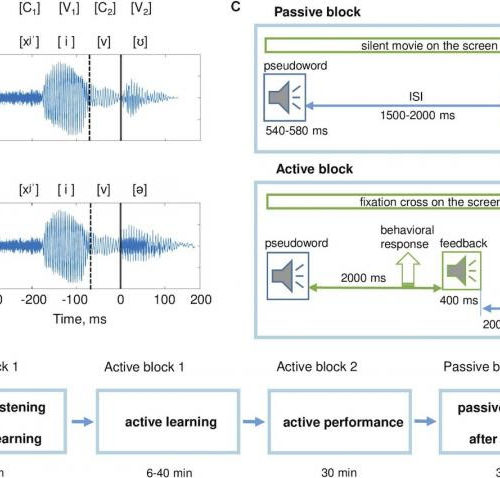By Ben Coxworth August 12, 2021 A group of the neurograins, displayed on a human finger for scaleJihun Lee / Brown University Whether they’re being used for research or for restoring lost capabilities to the disabled, brain-computer interfaces (BCIs) show a lot of promise. They could soon be much more effective, thanks to the development of tiny new sensors....
Category: <span>Brain Computer Interface</span>
FDA authorizes marketing of a new device for use in patients undergoing stroke rehabilitation
Reviewed by Emily Henderson, B.Sc. Apr 23 2021 Today, the U.S. Food and Drug Administration authorized marketing of a new device indicated for use in patients 18 and older undergoing stroke rehabilitation to facilitate muscle re-education and for maintaining or increasing range of motion. The Neurolutions IpsiHand Upper Extremity Rehabilitation System (IpsiHand System) is a...
Research lowers errors for using brain signals to control a robot arm
CHINESE ASSOCIATION OF AUTOMATION By measuring brain signals and implementing a clever feedback scheme, researchers from India and the UK have reduced the positional error in brain-controlled robot arms by a factor of 10, paving the way to greatly enhancing the quality of life for people suffering from strokes and neuro-muscular disorders. Brain-computer interfaces (BCI) have seen...
You can train your brain to reduce motion sickness
UNIVERSITY OF WARWICK IMAGE: WMG’S 3XD SIMULATOR AT THE UNIVERSITY OF WARWICK. CREDIT: WMG, UNIVERSITY OF WARWICK Visuospatial training exercises can train the brain to reduce motion sickness, providing a potential remedy for future passengers riding in autonomous vehicles. Researchers at WMG, University of Warwick reduced motion sickness by over 50% using the training tool...
Touch-and-know: Brain activity during tactile stimuli reveals hand preferences in people
DGIST (DAEGU GYEONGBUK INSTITUTE OF SCIENCE AND TECHNOLOGY) IMAGE: PRINCIPAL SCIENTIST DR JINUNG AN (LEFT) AND MR SANG HYEON JIN (RIGHT) IN THE LABORATORY OF BRAIN-ROBOT AUGMENTED INTERACTION FOR NEUROPLASTICITY AT DGIST. CREDIT: DGIST Have you ever wondered whether the brains of right-handed people work differently from those of left-handers? Is it possible to distinguish...
New research shows how fast our brains are at ‘recording’ new words
SKOLKOVO INSTITUTE OF SCIENCE AND TECHNOLOGY (SKOLTECH) IMAGE: HOW MUCH TIME DOES A BRAIN NEED TO LEARN A NEW WORD? A TEAM OF SKOLTECH RESEARCHERS AND THEIR COLLEAGUES MONITORED CHANGES IN BRAIN ACTIVITY ASSOCIATED WITH LEARNING NEW WORDS. How much time does a brain need to learn a new word? A team of Skoltech researchers...
Controlling robots with brainwaves and hand gestures
System enables people to correct robot mistakes on multi-choice problems MASSACHUSETTS INSTITUTE OF TECHNOLOGY, CSAIL Getting robots to do things isn’t easy: usually, scientists have to either explicitly program them or get them to understand how humans communicate via language. IMAGE: BY MONITORING BRAIN ACTIVITY, THE SYSTEM CAN DETECT IN REAL TIME IF A PERSON NOTICES...
A dual-therapy approach to boost motor recovery after a stroke
EPFL scientists have shown that combining a brain-computer interface (BCI) with functional electrical stimulation (FES) can help stroke victims recover greater use of their paralyzed arm — even years after the stroke ECOLE POLYTECHNIQUE FÉDÉRALE DE LAUSANNE Paralysis of an arm and/or leg is one of the most common effects of a stroke. But thanks...
Soft Electronics for Long Term Neural Monitoring and Recording
Scientists at ETH Zurich in Switzerland, Linköping University in Sweden, and Columbia and NYU in New York City, have developed a highly flexible soft electronic neural interface probe that can be stretched to twice its original length. The device is suitable for long-term neural recording, and could help clinicians to diagnose and monitor neurological conditions...
- 1
- 2




